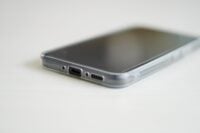 Owners of bricks-and-mortar bookstores, from Barnes & Noble (NYSE: BKS) to independent shops on many city corners, have hoped that the American love of physical books eventually would stem the move of readers to e-books. The hopes for that were further dashed by a new study from the Pew Internet and American Life Project. People with e-readers are more voracious consumers of books by far than people who own books made of paper.
Owners of bricks-and-mortar bookstores, from Barnes & Noble (NYSE: BKS) to independent shops on many city corners, have hoped that the American love of physical books eventually would stem the move of readers to e-books. The hopes for that were further dashed by a new study from the Pew Internet and American Life Project. People with e-readers are more voracious consumers of books by far than people who own books made of paper.
Pew reports that:
Device owners read more often. On any given day 56% of those who own e-book reading devices are reading a book, compared with 45% of the general book-reading public who are reading a book on a typical day. Some 63% of the e-book device owners who are reading on any given day are reading a printed book; 42% are reading an e-book; and 4% are listening to an audio book. Device owners are more likely to buy books. Some 61% of e-reading device owners said they purchased the most recent book they read, compared with 48% of all readers. Another 15% said they had borrowed their most recent book from a friend or family member (vs. 24% of all readers), and 10% said they borrowed it from a library (vs. 14% of all readers).
A reasonable conclusion to draw is that being in the e-book business is better than being in the sale of books to the “general book-reading public.” The financial reality of the book business is that e-books usually have better margins than books that are printed. Paper and shipment costs undercut gross margins.
The Pew study also showed that:
In mid-December 2011, 17% of American adults had reported they read an e-book in the previous year; by February, 2012, the share increased to 21%.
That is an amazing level of growth in just two months. Should it continue, e-book readership will become the dominant form of total readership soon.
Bookstores still believe that they will not go the way of the American newspaper. They think that because books are long-form content and newspapers are short-form that the contrast makes a difference. Perhaps it is because newspapers are disposable and most books are not. It looks like that assumption is untrue.
Douglas A. McIntyre
Sponsored: Find a Qualified Financial Advisor
Finding a qualified financial advisor doesn’t have to be hard. SmartAsset’s free tool matches you with up to 3 fiduciary financial advisors in your area in 5 minutes. Each advisor has been vetted by SmartAsset and is held to a fiduciary standard to act in your best interests. If you’re ready to be matched with local advisors that can help you achieve your financial goals, get started now.
Thank you for reading! Have some feedback for us?
Contact the 24/7 Wall St. editorial team.



